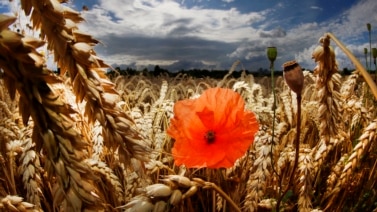
The United States celebrates Valentine’s Day each year on February 14. Images of hearts are everywhere, as are red roses and boxes of chocolates to give to that special person. You could say that “love is in the air.”
Many other countries celebrate Valentine’s Day, too, each in their own way. Here is a look at four countries’ Valentine’s Day traditions.
South Korea: three is a charm
For South Koreans, Valentine’s Day happens in three parts: February 14, March 14 and April 14.
On February 14, women traditionally give men gifts of chocolate to show their affection. One month later, on a holiday known as White Day, men show their thanks by giving women a sweet gift. The name “White Day” comes from the mostly outdated custom of giving white-colored gifts.
And, let’s not forget Black Day on April 14. Single people who did not get gifts on February 14 or March 14 often gather on Black Day to eat Jjajyangmyeon noodles with black bean sauce.
@radio_exols @weareoneEXO
— 🏁엑소엘 도서관(EXO-L library) (@book0805) April 14, 2019
Hello AJ~
April 14th is Black Day in Korea.
It's for those who can't exchange chocolate or candy on Valentine's Day(2/14) and White Day(3/14).
They comfort themselves and eat jjajangmyeon. 🍜#Top9at9EXO pic.twitter.com/mv6WeHapet
Wales: land o’ love spoons
Unlike many European countries, Wales does not celebrate Saint Valentine. It has its own Saint of Love. Her name is Saint Dwynwen. The Welsh holiday is called St. Dwynwen’s Day and takes place on January 25.
The traditional romantic gift on this day is a love spoon. Beginning in the 17th century, Welsh men carved beautiful wooden spoons as a representation of their love for that special person in their lives. Each pattern has a different meaning. For example, horseshoes mean good luck; keys represent the key to a man’s heart; and wheels are a sign of support.
Today in Wales, love spoons are also given at weddings, births and other celebrations.
St. of the Day: St. Dwynwen (5th c.)#angels
— WritingAngels (@LectorGirl85) January 25, 2020
Dwynwen translated means 'she who leads a blessed life'
In Wales, her feast is the equivalent of
St. Valentine's Day
Welsh Love Spoon (traditional gift)
From The Lovespoon Workshop, near Tenby in Pembrokeshire pic.twitter.com/mOshfje3dW
Argentina: a week of sweets
Argentina celebrates Valentine’s Day in February, but also gives a whole other week to love in July. They call it Sweetness Week. If you kiss someone, they have to give you a sugary treat.
Sweetness Week started in 1989 with a candy company called Arcor. They made an advertisement called “Candy for a Kiss.” The idea was to give the company’s chocolates and other candies in exchange for a sweet kiss on the cheek. The campaign had a stronger effect than the company expected -- it led to a new holiday!
Every July, couples who take part give each other candies and kisses all week long.
La semana de la dulzura la extendieron mis bellos compás quieren se siguen acordando de mí y me siguen llenando de regalitos, gracias por tantas muestras de cariño los quiero a todos .#semanadeladulzura pic.twitter.com/XGZsVCqhsJ
— Vanesa Ramos (@VaneRamos1402) July 9, 2019
United States: female friends
Finally, we turn to the United States.
Galentine’s Day, February 13, began as a made-up holiday on an American television show, Parks and Recreation. In one part of the show in 2010, the show’s main character, Leslie Knope, said Galentine’s Day is about “ladies celebrating ladies.” So, the day is a celebration of friendship between women.
Today, women use the holiday as a time to go out and have fun with female friends, co-workers or family members, or to show their love for personal female heroes.
On #GalentinesDay, I want to shout out my girlfriends who help me stay sane and grounded through all of life’s ups and downs. Whether catching up over the phone or laughing it out during an 80s-themed workout, I know I can lean on these ladies—and that’s made all the difference. pic.twitter.com/wcnamOyTJS
— Michelle Obama (@MichelleObama) February 13, 2020
On Galentine’s Day in 2020, for example, Michelle Obama thanked her girlfriends who support her through life’s ups and downs.
I’m Jill Robbins.
And I’m Alice Bryant.
Alice Bryant and Jill Robbins wrote this story for VOA Learning English. Ashley Thompson was the editor.
Words in This Story
affection - n. a feeling of liking and caring for someone or something
saint - n. a person who is officially recognized by the Christian church as being very holy because of the way he or she lived
spoon - n. an eating, cooking or decorative tool that has a small shallow bowl attached to a handle
pattern - n. a repeated form or design especially that is used to decorate something
key - n. a small device that is used to open a lock on a door
character - n. a person who appears in a television show, story, book, play or movie



